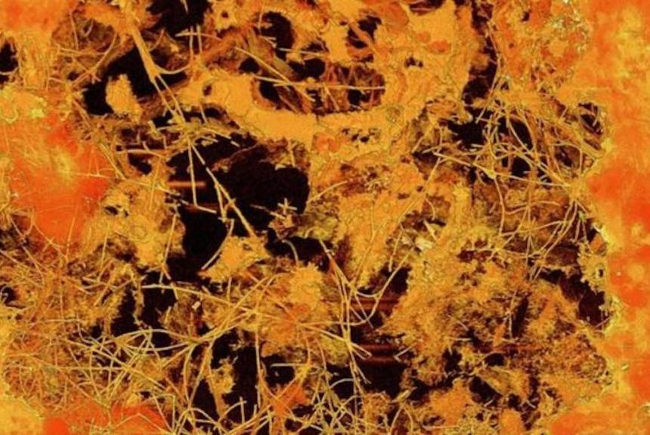Finding new fossils can represent the world's oldest fungus
This latest fossil discovery may disrupt the theory of time that appears the earliest life on Earth.
Specifically, international scientists have discovered an ancient fossil like the mushroom morphology found in rocks. It is estimated that this fossil is about 2.4 billion years old, which can represent the oldest fungus in the world, over 2 billion years old, with the old fungus ever discovered before. If this is true, this discovery could force scientists to reconsider the time of evolution, beginning early life on Earth.
It is known that these fossil samples were found in basalt rock formations in South Africa, which can be formed by lava when flowing to the sea floor.

Leading biologist Stefan Bengtson of the Swedish Museum of Natural History said: " The deep-sea biosphere - where fossils are found - represents a significant portion of the Earth's history, but we know very well. little about its particular biological characteristics and even less knowledge of its evolutionary history ". He told BBC News.
Newly discovered fossils are shaped like tangled strands, similar to other young fossil fossils that have been found in dry soil.
Cracks in the ancient rock show that volcanic lava that can flow into deep oceans impacting on this rock and lava can also create air bubbles that contain many other ancient life.
Bengtson said: "The fungus in this environment probably lives in symbiosis with other bacteria deep in the ocean to create stored chemical energy for survival, it can even live without oxygen. Free in the deep sea before turning into fossils in stone " .
Bengtson and colleagues published this study in Nature Ecology and Evolution.
According to some information on the sidelines, there are also a number of scientists who are suspicious of this discovery, and began to make some assumptions regarding early life on Earth.
Andrew H. Knoll, professor of natural history at Harvard University, said: "This discovery truth may be surprising because it will have important implications for the history of life beginning early on Earth. far beyond the molecular fossil evidence associated with the origin of ancient organisms ever discovered, and the number of evidence derived from fungi is much less . '
Bengtson said: "This is why we call this fungus the master of the ancient fossils that are not fungi. We have also analyzed the basic filament structures found in the This ancient fossil mushroom ' .
You should read it
- ★ Top 4 best selling hot and cold water plants today
- ★ 8 types of plants that resist ultra-good electromagnetic radiation for those who regularly use computers
- ★ How to Protect Plants
- ★ Plants feel pain when they are eaten and have a defense mechanism against it
- ★ The second time the ancient fossil '3 in 1' was discovered